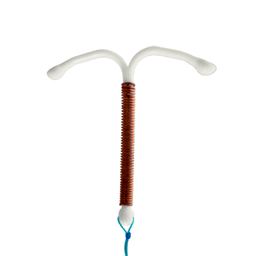Compare Methods
Explore and compare various contraceptive options side by side based on key factors such as effectiveness, side effects, ease of use, hormone content, cost, protection against STIs, and more. This tool helps you make informed decisions by visually highlighting the differences and similarities between methods, so you can choose what best aligns with your body, lifestyle, and preferences.


Copper IUD: A T-shaped device inserted into the uterus that prevents sperm from fertilizing an egg
Cervical Cap: A small, cup-shaped device placed over the cervix to block sperm from entering the uterus
Effectiveness
The copper IUD is is more than 99% effective at preventing pregnancy, and is categorized as a "get-it-and-forget-it method".
Cervical caps must be used correctly every time you have intercourse. Realistically, they are about 71-88% effective at preventing pregnancy.
Cost
$0 - $1800
$0 - $90
Manages Period Symptoms
The copper IUD may cause some to have a heavier than normal period.
Internal condoms must be used correctly every time you have intercourse. Realistically, they are about 79% effective at preventing pregnancy.
Maintains Weight
The copper IUD have little or no influence on weight.
Cervical caps have little or no influence on weight.
Low Maintenance
The arm implant requires little maintenance and can last up to 5 years before being replaced.
Cervical caps must be used every time you have intercourse.
Hormone-Free
The copper IUD uses copper to repel sperm and does not use any hormones.
Cervical caps have no hormones.
Partner Participation
The copper IUD does not require partner participation
Cervical caps do not require partner participation.
Prevents STIs
The copper IUD does not prevent the spread of STIs.
Cervical caps do not prevent the spread of STIs.
Vaginal Insertion
The copper IUD must be inserted into the vagina by a doctor or health care professional in a clinical setting.
The cervical cap requires one to insert it into their vagina and place against their cervix for use.
Require Prescription
The copper IUD must be inserted by a doctor or health care professional in a clinical setting.
The cervical cap requires a prescription from your doctor or health care provider. It can be picked up from a pharmacy or clinic.
Medical Procedure
The copper IUD must be inserted by a doctor or health care professional in a clinical setting.
You do not need to undergo a medical procedure for this birth control method.
Medical Benefits
Reduction in risk of developing cervical and endometrial cancer.
May reduce the risk of cervical dysplasia and cancer.
Conflicts with Health Conditions
More condition details*This guide offers general advice. Please consult your provider for personal recommendations.
More condition details*This guide offers general advice. Please consult your provider for personal recommendations.